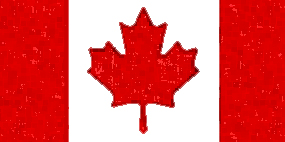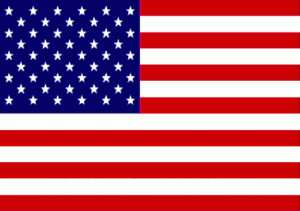 It seems that the pressure by the American copyright lobby to dictate Canadian Copyright law is again mounting. Of course I’ve been trying to work on my novel and so didn’t realize this was happening.
It seems that the pressure by the American copyright lobby to dictate Canadian Copyright law is again mounting. Of course I’ve been trying to work on my novel and so didn’t realize this was happening.
My first inkling was a Michael Geist tweet:
michaelgeist EFF & PK warn against using USTR Special 301 process to sanction countries for not implementing ACTA http://bit.ly/cBtQvV
Nutshell: The United States Trade Representative (USTR) creates a “watch list” of countries who fail to provide “adequate and effective” protection of intellectual property rights or denial of “fair and equitable market access to U.S. persons who rely on intellectual property protection.”
The idea is that if you don’t play nice with American IP, all the other countries hear about it.
Apparently the very powerful American Copyright Lobby has a history of applying pressure to the USTR to include countries based on allegations rather than any proof, in an attempt to coerce countries like Canada to make or laws beneficial to these American corporations.
Public Knowledge and the Electronic Frontier Foundation submitted a joint comment to the USTR Consultation outlining many instances of the misapplication of these sanctions.
The American Trade Act defines “adequate and effective protection” as the refusal of the country to provide means under its laws for foreign nationals to exercise and enforce their IP rights.
It considers a country to have denied market access if its laws or regulations violate provisions of international agreements to which both the U.S. and that foreign country are parties or if the law or regulation constitutes a discriminatory non-tariff barrier. Thus, a country should be considered to provide adequate and effective IP protection and fair and equitable market access for these purposes if it complies with its existing international obligations and provides foreign rights-holders with a means under its domestic law to enforce their rights or seek access to its markets.
Failure to sign international agreements does not per se mean the country has failed to provide adequate and effective protection for U.S. rights-holders’ intellectual property. This is also consistent with the principle of national sovereignty, a foundational principle of the modern world order, which recognizes a country’s freedom to choose international instruments to which it will be bound.”
— COMMENTS of PUBLIC KNOWLEDGE and the
ELECTRONIC FRONTIER FOUNDATION
in the Matter of 2010 Special 301 Review:
Identification of Countries Under Section 182 of The Trade Act of 1974
http://bit.ly/cBtQvV
Reading through the PK and EFF comments all I can say is that I for one am very glad that they are out there working to protect the internet for all.
Michael Geist has often said that Canada already has very tough Intellectual Property law, and IP lawyer Howard Knopf tells us exactly why in his Excess Copyright blog post The “Annual 310 Show” – USTR Calls for Comment – 21 Reasons why Canadian Copyright Law is Already Stronger than U.S.A.’s
I made use of PK’s handy online form to submit my comments as a private Canadian citizen, and although it was a tad past the deadline, it was accepted. I thought it particularly important since our own Canadian Government elected not to make a submission.
I realize that our legislature is currently prorogued, but that isn’t slowing down Canadian participation in the ultra-secret A.C.T.A. trade negotiation. In fact, if Canada is singled out here by the USTR it would simply provide more leverage to coerce Canada into signing the A.C.T.A. agreement, no matter how dreadful.
RE: 2010 Special 301 Review
Docket Number USTR-2010-0003Jennifer Choe Groves
Senior Director for Intellectual Property and
Innovation and Chair of the Special 301 Committee
Office of the United States Trade Representative
600 17th Street NW
Washington, DC 20508
Filed electronically via Regulations.govDear Ms. Groves:
The United States Trade Representative (USTR) must not allow rights holders to use this proceeding to force sovereign nations to impose overzealous restrictions on their citizens and interfere with our civil liberties or diminish our global standing.
Whatever happened to the American spirit of liberty, and vaunted dedication to life, liberty and the pursuit of happiness?
The USTR must recognize the importance of balanced intellectual property law to innovation and free expression. The provision for innovation and free expression is necessary for culture to exist.
The USTR must demand rights holders support claims of infringement and loss with verifiable data following standards of proof and the rule of law.
Unsubstantiated accusations can be made in error, or just as easily made spuriously by entities who are not even the rights holders as a means of suppressing free speech.
The United States will lose global credibility by continuing ton this slippery slope.
The United States does not have the right to dictate Canada’s specific structure of domestic laws. Your rights holders’ demands for increasing criminal penalties, prison terms, fines, and liability have no place here as we have the sovereign right to determine our own limitations and exceptions to copyright.
Canadian Copyright law is robust, in many ways stronger than your own as explained in esteemed Canadian Intellectual Property lawyer Howard Knopf’s blog: http://excesscopyright.blogspot.com/2010/02/annual-301-parade-ustr-calls-for.html
As a Canadian Citizen and a writer I hope the USTR follows the law not the lobbyists.
Regards,
Laurel L. Russwurm




[…] doesn’t even have to be any truth to USTR assertions; just including Canada on the “USTR 301 Watch List” lends authority to the allegations, no matter how […]
[…] Canadian Copyright is a Canadian Affair […]
[…] Office of the United States Trade Representative‘s infamous USTR Watch List is a prime example of misinformation mongering. The USTR has been making a point to include Canada […]
Nicely written Laurel.
[…] up sovereign Canadian right to craft our own domestic laws on incredibly important issues like copyright and the […]
[…] by Laurel L. Russwurm on February 22, 2010 This past Thursday I scrambled to put together a personal submission to the Office of the United States Trade Representative. Although the USTR made it clear […]